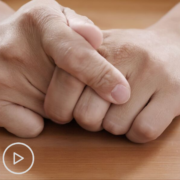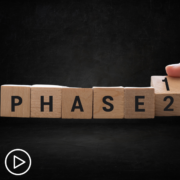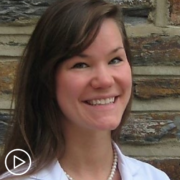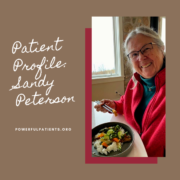Nervous About a Second Opinion? How to Confront Your Fears
Nervous About A Second Opinion? How to Confront Your Fears. from Patient Empowerment Network on Vimeo.
Chronic lymphocytic leukemia (CLL) patients may be hesitant to ask for a second opinion to help guide their care and treatment choices. Dr. Brian Koffman shares his advice for confronting fears and becoming a confident self-advocate. Need help speaking up? Download the Find Your Voice Resource Guide here.
Dr. Brian Koffman is the cofounder, chief medical officer, and executive vice president of The CLL Society.
See More From The Pro-Active CLL Patient Toolkit
Related Resources
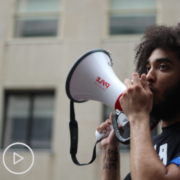
|
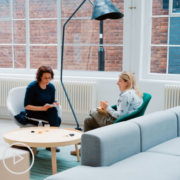
|

|
Transcript:
Dr. Koffman:
It’s a relatively rare cancer, and most hematologists and oncologists are busy taking care of the more common cancers, like breast, colon, prostate, or lung cancer.
So, they don’t really have a lot of experience compared to a CLL expert who only sees CLL patients, or more than half their practice is CLL patients, in terms of taking care of those patients. There are roughly 20,000 hematologist/oncologists in the USA, and there are roughly 20,000 new patients diagnosed with CLL a year, so if you do the math, you can figure out a community hematologist might be seeing one new CLL patient every year.
So, you wouldn’t see a surgeon who does one hernia repair a year, you’d see one who does many every week. So – and, it’s not just that these people have more experience. There’s research that shows that there’s a survival benefit to seeing a CLL expert, and people live roughly two years longer – based on some old research – by just having an expert as part of their team.
Above and beyond that, CLL is being revolutionized in how it’s being treated, and there’s all kinds of new therapy, and what the best treatment today will be upstaged by a better treatment next month, perhaps. So, unless you’re really focused on CLL, you’re not gonna be aware of what the latest data, what the latest research is, so it’s critically important because they’re on top of what the latest research is, they’re on top of what the latest clinical trials are, they’re on top of the best way to use the new medications that are available, and they provide you with significant survival advantage and management of some of the potential complications with CLL.
So, some people are concerned about getting a second opinion because they’re worried that it might portray to their doctor that they don’t have trust in their judgement or that they’re not happy with the care that they’re getting. Well, as a retired physician, let me assure you that most doctors are very thick-skinned, and we generally welcome people getting another opinion – a second opinion – and medicine is collaborative, and so, most doctors aren’t hesitant about you doing that, and welcome that. Bluntly, if you have a doctor who doesn’t want you to get a second opinion, that would be, for me, a real urgency to get a second opinion.
If hesitant or nervous about getting a second opinion, what I would encourage you to do is think hard about what – whose skin is in this game. Who is the person who has the disease? Who is the person that’s gonna benefit from getting that extra information? So, what is the worst that could happen? The worst that could happen is that you could see the expert, get an opinion that’s identical to your own physician’s, and that just inspires confidence in what’s going on.
The other thing that could happen is there might be an alternative that’s more attractive – less toxic, more effective – and wouldn’t you kick yourself if you hadn’t taken that chance and pursued getting that extra information? So, it’s – every medical decision should be a shared medical decision, and it’s all right as patients to ask for that second opinion and just…not to be hesitant about doing it.
Really, again, it’s rare that a doctor is gonna object to you doing that, and if your doctor objects, then I think you’ve gotta look at what that means, and especially in view of the data, there’s a survival advantage to getting a second opinion.

